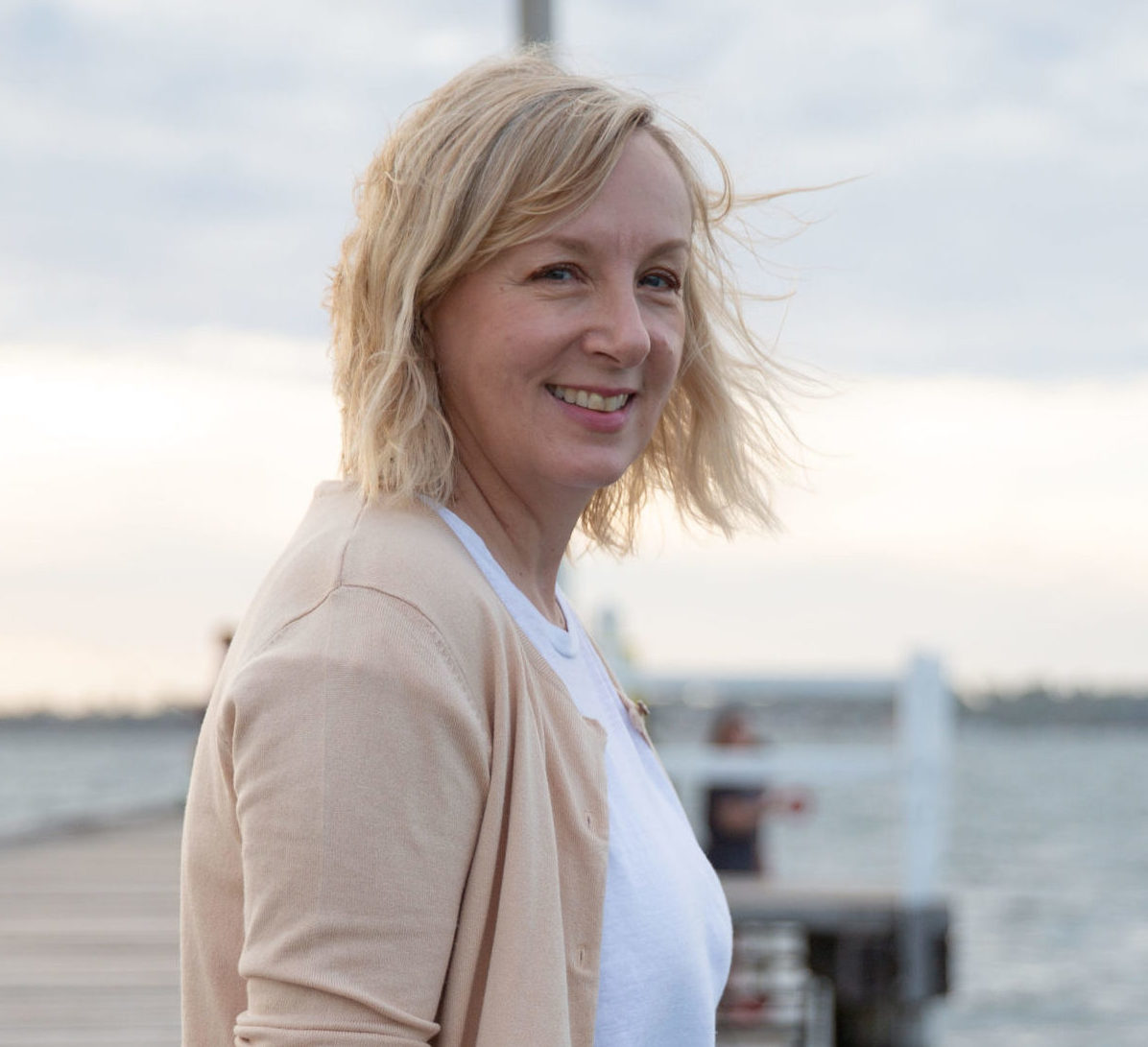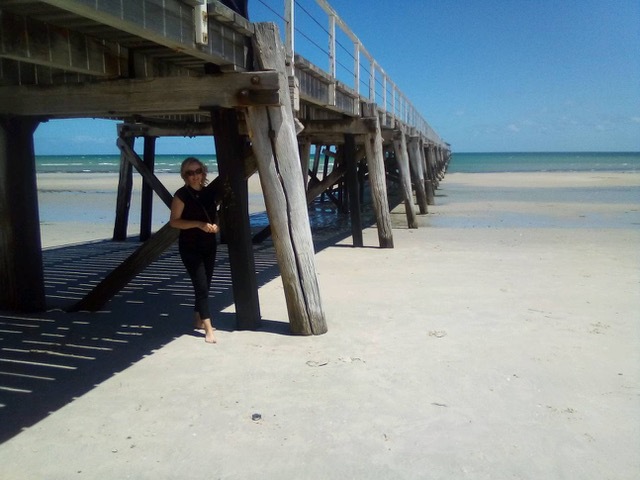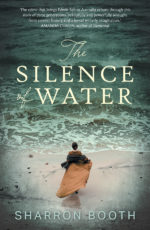Fremantle Press writer Sharron Booth shares her research journey on the road to publishing her debut historical novel

Sharron Booth had been working on her novel The Silence of Water years before it was shortlisted for the City of Fremantle Hungerford Award in 2020. In this post she shares a deep dive into the research techniques she learned along the way.
Documents, diligence and daydreaming: the secrets to historical fiction writing
When I first began my research for The Silence of Water, I bought a set of identical white lever-arch files, labelling them with white cards inserted into the spines with epidural precision: English characters. Western Australian characters. Salt extended family. Lichfield. Edinburgh. East Perth and so on.
Over the time I spent in archive rooms, libraries and registries, I filled them with copies of birth certificates, marriage certificates, sombre blue-grey death certificates, pages from parish registers, police occurrence books, letters, petitions, employment records, military records, newspaper articles, land titles and council rate books.
As a rookie researcher, I set up my files in the assumption that historical research would be contained, predictable and aesthetically reassuring: a kind of historical bonsai. Yet by the time I finished, the white files were a little harder to spot among the pamphlets, train tickets, beer coasters, photos, Post-it notes capturing scraps of overheard conversations, rocks, twigs, pine cones and many, many seashells. What I’d thought was bonsai turned out to be a dormant vine in need of a good feed.
No matter how many photocopies you pay for, the answer is never black and white
Several of those white files are labelled National Archives – London. Today, they remind me that of all the feats I performed while researching my novel – getting stung by nettles in a muddy graveyard, sneaking into a garden to take photos of a house, jumping a gate to dig up stones from a disused road – the most dangerous turned out to be overstaying the maximum allowable time at the National Archives’ photocopier. Ask the man in the queue behind me. My hands were clammy and my cheeks burned, but I kept pressing and pressing that green copy button, mumbling something about how it was my last day in London. The fear prickled like static. Not that the man would report me to management for my upstart-colonial lack of fair play, but something far worse; fear that the document I neglected to read would turn out to be the key to my entire novel and I would be unable to complete the story without it.
My belief that the answer would be found in historical documents led me to amass a pretty impressive amount of information. By the time I started writing, I knew Edwin Salt’s CV by heart: where he was born, the names of all his extended family, his employment history, who he had married and where he had lived. I’d learned that his daughter, Agnes, had made a life in South Australia with her husband and their three children. At some point, Agnes had evidently returned to Western Australia with her family, and Edwin had come to live with them in Fremantle.
My early drafts of The Silence of Water sounded a lot like the paragraph you’ve just read. I’d written detailed scenes about the births, marriages and deaths of unrelated characters; whole pages were devoted to people moving house and changing jobs. Not exactly the absorbing page-turner I was aiming for.
Afraid of getting it wrong, I’d missed the two most important facts about writing a novel: it needed a story, and characters the reader would care about.
I knew a lot about Edwin, but I kept coming back to what I didn’t know – and that was mostly about the women characters. Agnes had clearly made a life for herself in South Australia. Why did she and her family return to Western Australia and why was Edwin living with them? Edwin’s death certificate contained a lot of information about his English children, meaning that whoever notified the registrar knew a lot about him. How much did Agnes know about her father’s past? And what about Agnes’s children? She had a daughter and two younger sons. I began to wonder about how Agnes’s daughter reacted to having to move to Fremantle and live with her grandfather. As a woman writer interested in women’s stories, I was interested in how this upheaval affected the relationship between Agnes and her daughter. What was it like for all of them, living in such a cramped house? And what might happen if one of the family found out the circumstances of Edwin’s arrival in Australia?

Beach walks, staring out of windows and other research essentials
My research trips weren’t all hushed archive rooms and weird old handwriting. I travelled hundreds of miles across Britain in cheap train seats, daydreaming about Edwin as a young, ambitious man desperate to change his life via this revolutionary new transport. In Adelaide, I stayed near Semaphore Beach. Every morning I walked on Semaphore’s famous jetty and I felt like I could walk to the end of the world. I imagined Agnes doing the same. One morning, I pictured a young girl running across the sands and leaping into the water, her long hair trailing behind her. I understood instantly she was Agnes’s daughter, and I called her Fan, a shortened version of what Agnes named her. I knew she loved the beach and that her curiosity would get her into trouble.
The most significant moment occurred one quiet, sunny afternoon. I laid flowers on the unmarked grave of a woman who left virtually no trace in the archives and who died long before Fan was born. I had no connection to her beyond the privilege of having the time and resources to look into her life. I’d read the documents about the circumstances of her death, yet only on that day did I realise it had affected me so much, I couldn’t rest until I did something about it.

Find out everything, then forget it
So what mattered most? Reading old maps at Lichfield Records Office or lying on the grass outside Lichfield cathedral, daydreaming? The date on a passenger list, or imagining Agnes feeling the breeze on her face on Semaphore Jetty? Should I have spent my last afternoon in London going shopping instead of risking the wrath of Mr Really Quite Annoyed from Chelsea?
The truth is they both mattered most: the knowing and the not knowing. As I once heard Australian writer Carmel Bird say at a writers festival, find out everything you can and then forget it. In my view, she was talking about letting the research compost down a little so it can feed your subconscious. Equipped with files full of information, I was drawn to the stories of the women I encountered. Perhaps a writer with other preoccupations would have seen a completely different story pushing through. Historical research is addictive and illuminating, but it was the things I didn’t, and potentially couldn’t know, that revealed what I needed to write about.



